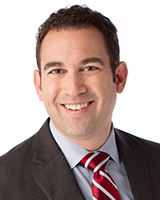Supporters petition to raise the state's minimum wage to $15 an hour


SAN FRANCISCO, Calif. (KGO) -- This November, California voters may decide more than who will be in the White House.
It's looking like voters will also get to decide whether to raise the state's minimum wage a dollar a year until it hits $15 an hour.
Supporters presented thousands of signed petitions to San Francisco City Hall Tuesday to make sure that option gets on the ballot.
Lifting up boxes of signed petitions, the campaign to raise the minimum wage says it has enough to put it to a vote.
Lieutenant Governor Gavin Newsom is leading the charge, backed by SEIU, the union that's vocally picketed the fast food industry over low pay.
"Six hundred thousand signatures in just a few weeks," Newsom said. "Here we are in California, one of the most vibrant economies on planet earth, with more people living below the poverty line than any other state in our nation. We've got to step it up."
In San Francisco, the minimum wage is already set to gradually increase until it hits $15. Supporters of the statewide initiative say it would be a step toward leveling an increasingly uneven playing field.
"Who can live on $21,000 year today? Nobody can," said San Francisco Mayor Ed Lee.
San Francisco has seen the downside. Stores like Borderlands Books that were making a small profit were trying to stay afloat.
"By 2018, we'll be losing about $25,000 a year," said the owner of Borderlands Bookstore.
As for big companies? The head of San Francisco's Republican Party thinks higher labor costs could encourage businesses to replace more workers with machines.
"They say we're going to do more with less and so they're going to reduce the number of workers, or not hire additional workers," said Christine Hughes, chair of the San Francisco Republican Party. "So, in my opinion, we're going to have really more unemployment."
Supporters of the ballot measure say raising wages across the whole state will put spending money into people's pockets.
"So, when folks can afford the basics like school supplies, repairs on their cars, medical appointments, the whole community is lifted up by people spending that money in the neighborhood," said Laura Eberly, YWCA community organizer.
If it's certified, the measure goes before voters in November, raising the minimum wage $1 a year until it hits $15, with increases for cost of living after that.











